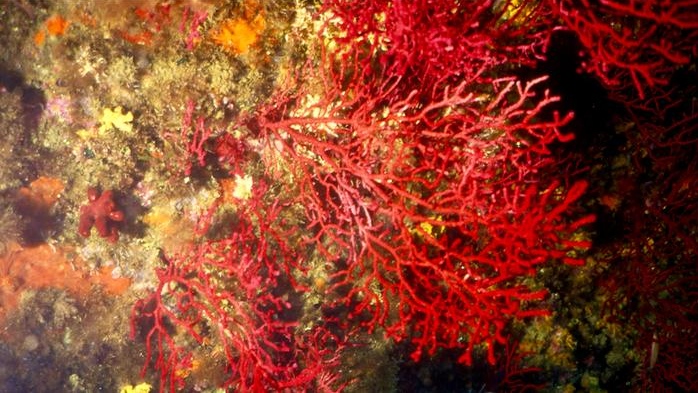Researchers have identified a specific single-celled microbe that they say may be key in helping coral survive disastrous ocean-warming events such as coral bleaching.
In a new study published in December in the peer-reviewed journal Environmental Biology, researchers studied a species of coral, which lives across the Mediterranean, and found that the presence of a parasitic type of single-celled microbes was significantly higher among coral that was capable of surviving heat stress.
“This is the first time that a non-algae microbe has been shown to influence the ability of corals to survive a heat-stress event,” Javier del Campo, an adjunct assistant professor at the University of Miami Rosenstiel School of Marine, Atmospheric, and Earth Science and the study’s senior author, said in a Thursday press release.
“As corals face more and more heat-stress events due to climate change, a better understanding of all the microbes that may influence survivability can inform conservation practitioners as to which corals they should prioritize for intervention.”
Researchers collected samples of Paramuricea clavata, and performed heat stress experiments on the coral to more closely examine what was occurring on a microbial level. Samples were collected from 11 locations in Italy, France, Spain and Portugal.
This type of coral has been facing increasing amounts of “mass mortality events” (MMEs), which used to be uncommon in the temperate waters of the Mediterranean Sea.
“The increase in the frequency, duration, and intensity of marine heat waves driven by global warming has been suggested to be the primary cause of the increase in MMEs in the Mediterranean,” the authors wrote in the study.
In these mass die-offs, P. clavata is often heavily affected, with up to 80 per cent of local populations being killed off during marine heat waves. And it’s having an effect on ecosystems as a whole, researchers say, leading to lower species diversity in the region due to so many species losing their homes when the coral dies.
There are a few ways that rising ocean temperatures can kill coral. One of the most well-known is coral bleaching, which occurs when zooxanthellae, tiny algal organisms that live symbiotically in the tissue of marine animals including corals and anemones, are killed by the heat or flee their host, leaving the coral essentially lifeless.
Rising temperatures impact P. clavata by decreasing the host defence and promoting the growth of dangerous pathogens, the study explains, with intense thermal stress leading to partial or full necrosis of the coral. Its limbs will change colour from a vivid red to grey, and then the skeleton will start to erode.
But this new study suggests that a better understanding of the microbes at play could help us predict which coral will be able to withstand higher temperatures—and maybe protect more coral in the future.
During heat stress experiments, the temperature of tanks containing coral samples were increased slowly from 18 C to 25 C over a period of three days.
Researchers then recorded which were the most resistant to thermal stress and examined the bacterial microbiome of all specimens. Although there were significant differences between coral sources from different locations, a pattern emerged. Levels of Syndiniales, an order of parasites known to infect a variety of marine organisms, were higher among the coral more resistant to thermal stress.
The study highlighted that more research is needed to investigate how these microbes may play a role in making coral more resistant to the detrimental impacts of climate change. One theory is that Syndiniales might be more likely to be present in very healthy marine environments because of the role parasites can play in maintaining the balance of population dynamics and species competition.
“The high abundance of these microbes within the P. clavata (structures and surrounding environment) may contribute to a healthy and resilient system by influencing the microbial community dynamics when confronted with heat stress,” researchers wrote in the study.
Researchers also found that there were higher levels of Corallicolids, a groups of protists (single-celled organisms) related to the parasite that causes malaria in humans, in the coral samples that were most impacted by heat stress.
“The microbiome is a vital component of coral host health and we should study all members of it from the bacteria to the protists,” del Campo said.




